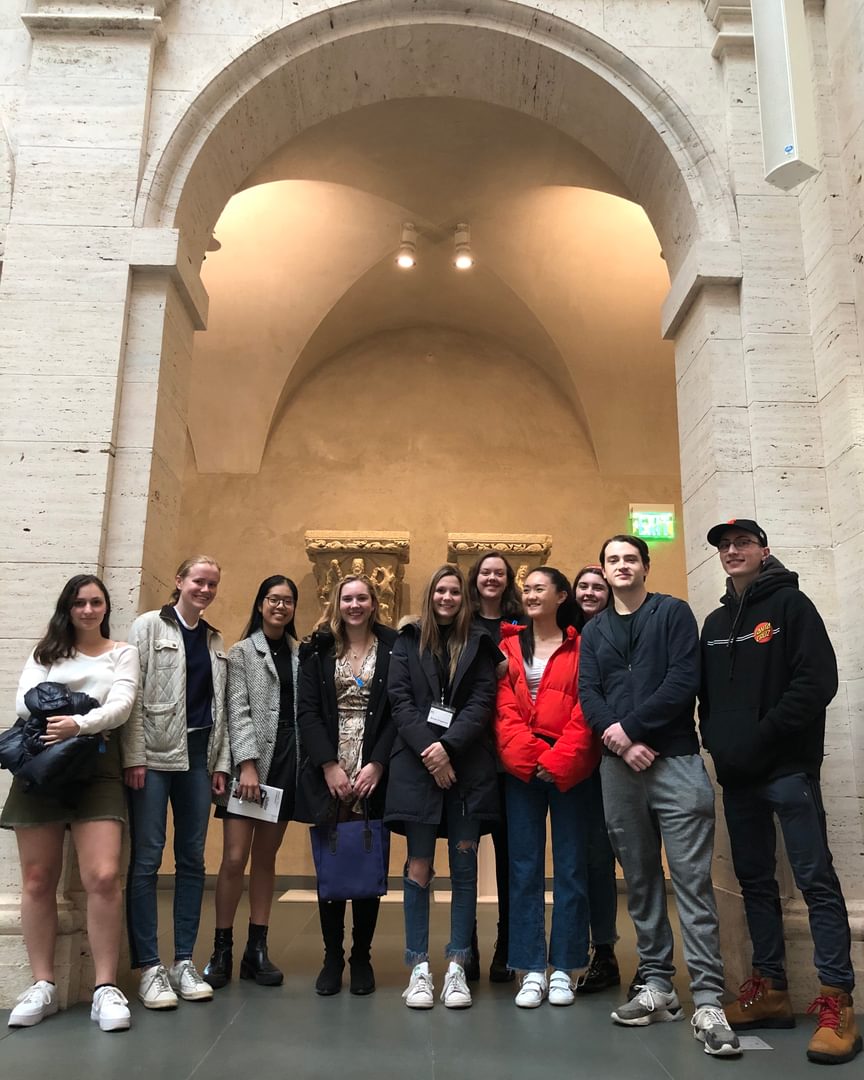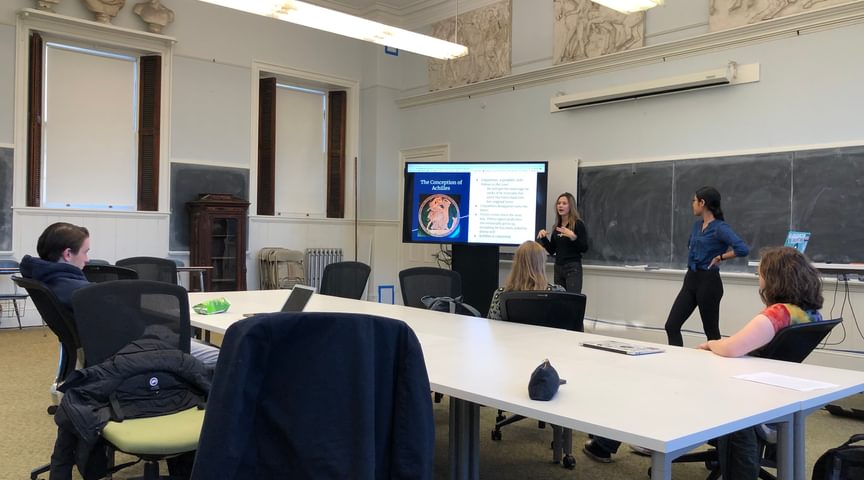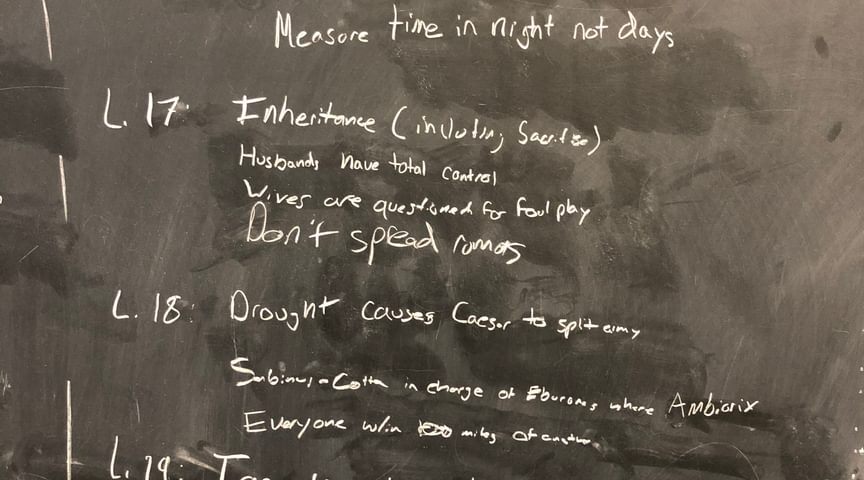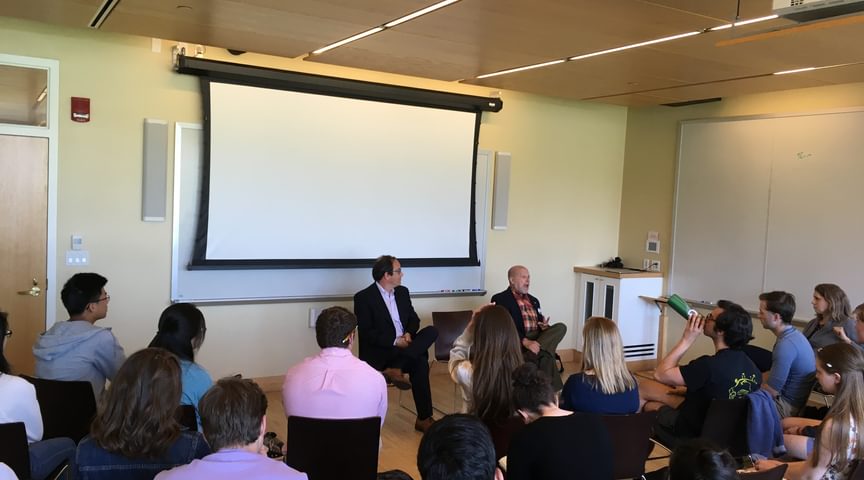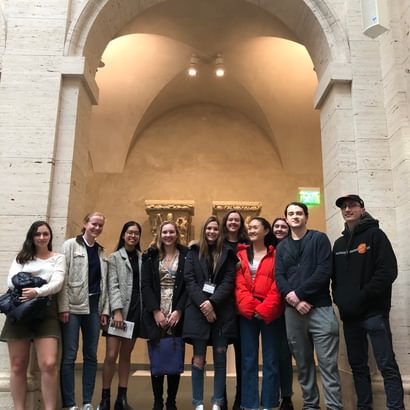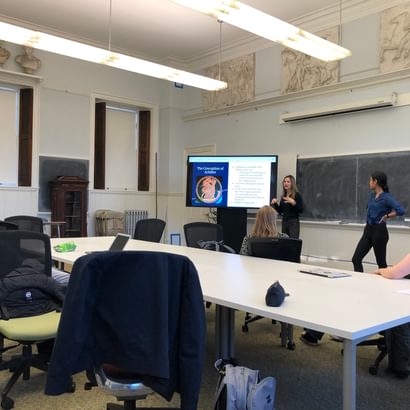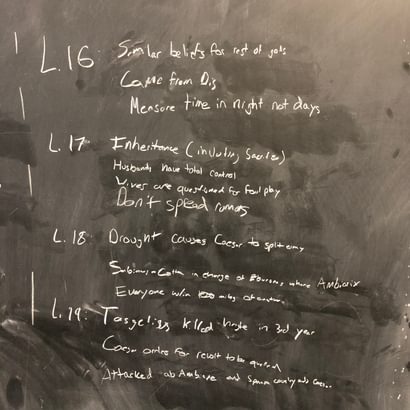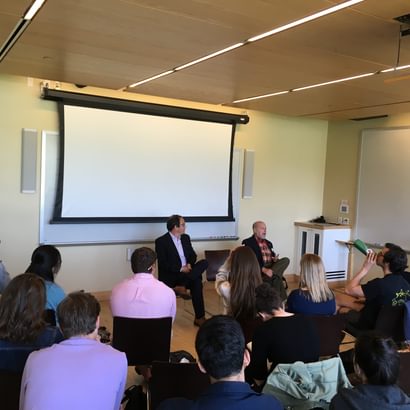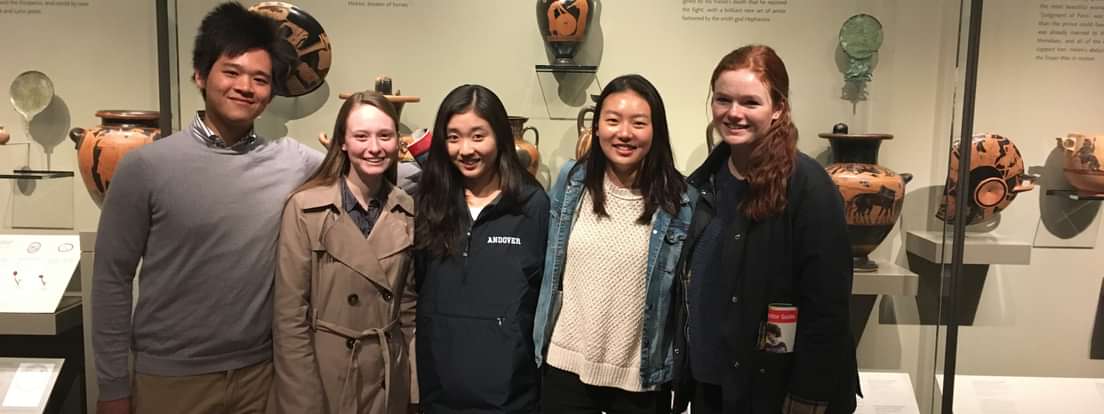
Classics
The Phillips Academy Department of Classics values the study of Latin and Greek not because the languages are ancient, but rather because they are ever-present. Our English language has over sixty percent of its vocabulary derived from Latin and Greek roots; the complex syntax and behaviors of English (and other languages) is often made clearer by examining the equally complex grammar of classical languages. Similarly, the modern struggles we face now in our world are often the same ones faced by the ancients in theirs.
Though our department’s curriculum focuses on the linguistic and literary aspects of Latin and Greek, we recognize that the study of ancient languages is inherently both multidisciplinary and interdisciplinary. Conducted in Pearson Hall, our explorations of language also include wanderings through the fields of philosophy, anthropology, mythology, history, art history, rhetoric, and more. Evergreen questions of identity, citizenship, and interconnectedness pervade our texts and prompt us to continuously interrogate these issues not just for ourselves, but for those who came before and those who will come after.
Our Faculty
Meet our instructors. Joshua Mann is the Classics Department Chair.

Catherine J. Carter
Instructor in Classics, House Counselor, Advisor, Assistant Coach for Girls' Varsity Swimming [email protected] view full profile“There is so much that is fun for me about Latin: the intellectual puzzle, the interpretive challenge, the call to situate this particular classical tradition thoughtfully and responsibly for contemporary readers."

Joshua Mann ’96
Classics Chair and Instructor, Winter Outdoor Pursuits Coach, JV Baseball Coach, EBI Foundations Instructor, Former Tang Fellow, Former College Ski Alpine Ski Racer, Amateur Mycologist and Ornithologist [email protected] view full profileJoshua Mann, Chair of the Department of Classics, joined the Phillips Academy faculty in the fall of 2013. Along with teaching the traditional Latin and Greek curriculum, Joshua has developed new courses which provide options for students who want to explore multidisciplinary and advanced study in translation theory, history of women in the ancient Mediterranean, trauma literature, and lyric poetry.
IN THE CLASSROOM:
Women in Antiquity | CLA552
The literary woman in antiquity and the actual woman in antiquity are rather different concepts. In classical literature, we can find numerous examples of powerful, erudite, and accomplished women; however, in classical history, these examples are few. In this course, we will look at this variance and try to determine how it came to be, especially in societies whose own deities were often female. We will pay close attention to literary figures such as Helen, Andromache, Medea, Lysistrata, Lucretia, Lesbia, and Dido, and we will examine the life of the actual woman in the classical world in order to see how her experience compares with her literary counterpart. Although not required, students with experience in Latin or Greek may continue working with ancient texts in the original language.
Miss McIntire teaches Latin and Greek, hikes with Outdoor Pursuits in the fall and paddles in the spring, and enjoys playing viola in the Academy orchestra. She is a house counselor in a 11th-12th-grade girls' dormitory.
Dr. Meyer's main gig is teaching Latin and Greek in Pearson Hall. She occasionally ventures out to team teach with colleagues from other departments, and has been a guest teacher in the Brace Center's Gender Theory Colloquium for the past several years. She spends her autumn afternoons as an assistant coach for cross country, and in the dark winter twilight she leaves her cozy office to serve as a spin instructor.
Sample Courses
LTN400: Fourth-Year Latin
The Latin 400 series is a curriculum designed for students emerging from third-year Latin who would like more practice translating and analyzing Latin literature before they take on the rigors of Latin 520 (Vergil and Caesar) or Latin 600 (Latin lyric poetry). In this sequence, students will explore voces extra aureum (Latin texts from before and after the Golden Age), reading literature of different genres and eras than is offered elsewhere in our curriculum. Students will gain extensive experience with translation and analysis, and they will examine themes with contemporary relevance (e.g., social class and slavery, family and gender, freedom and empire). Authors include Tacitus, Terence, and Livy (technically a Golden Age author, but whose histories cover foundational stories from the early history of Rome).
CLA420: Art of Persuasion
Since well before the rise of rhetoric as a discipline, the art of persuasion has been a powerful tool for those who are skilled in its use. In this writing-based course, students will examine the use of language (and images) by people whose goals, livelihoods, or even lives depended upon persuading others. From logographers in the courtrooms of fifth-century BCE Athens to present-day politicians, lawyers, advertisers, and confidence players, people who can wield language have immense power over those unaware of its subliminal influence. Beginning with the study of Aristotle and progressing to the analysis of current media strategies, this course is at the same time traditionally academic and immediately practicable.
CLA552: Women in Antiquity
The literary woman in antiquity and the actual woman in antiquity are rather different concepts. In classical literature, we can find numerous examples of powerful, erudite, and accomplished women; however, in classical history, these examples are fewer. In this course, we will look at this variance and try to determine how it came to be, especially in societies whose own deities were often female. We will pay close attention to literary figures such as Helen, Andromache, Medea, Lysistrata, Lucretia, Lesbia, and Dido, and we will examine the life of the actual woman in the classical world in order to see how her experience compares with her literary counterpart. Where we are able, we will study the writings of actual female authors such as Sappho, Corinna, Erinna, and Sulpicia. Although not required, students with experience in Latin or Greek may continue working with ancient texts in the original language.







